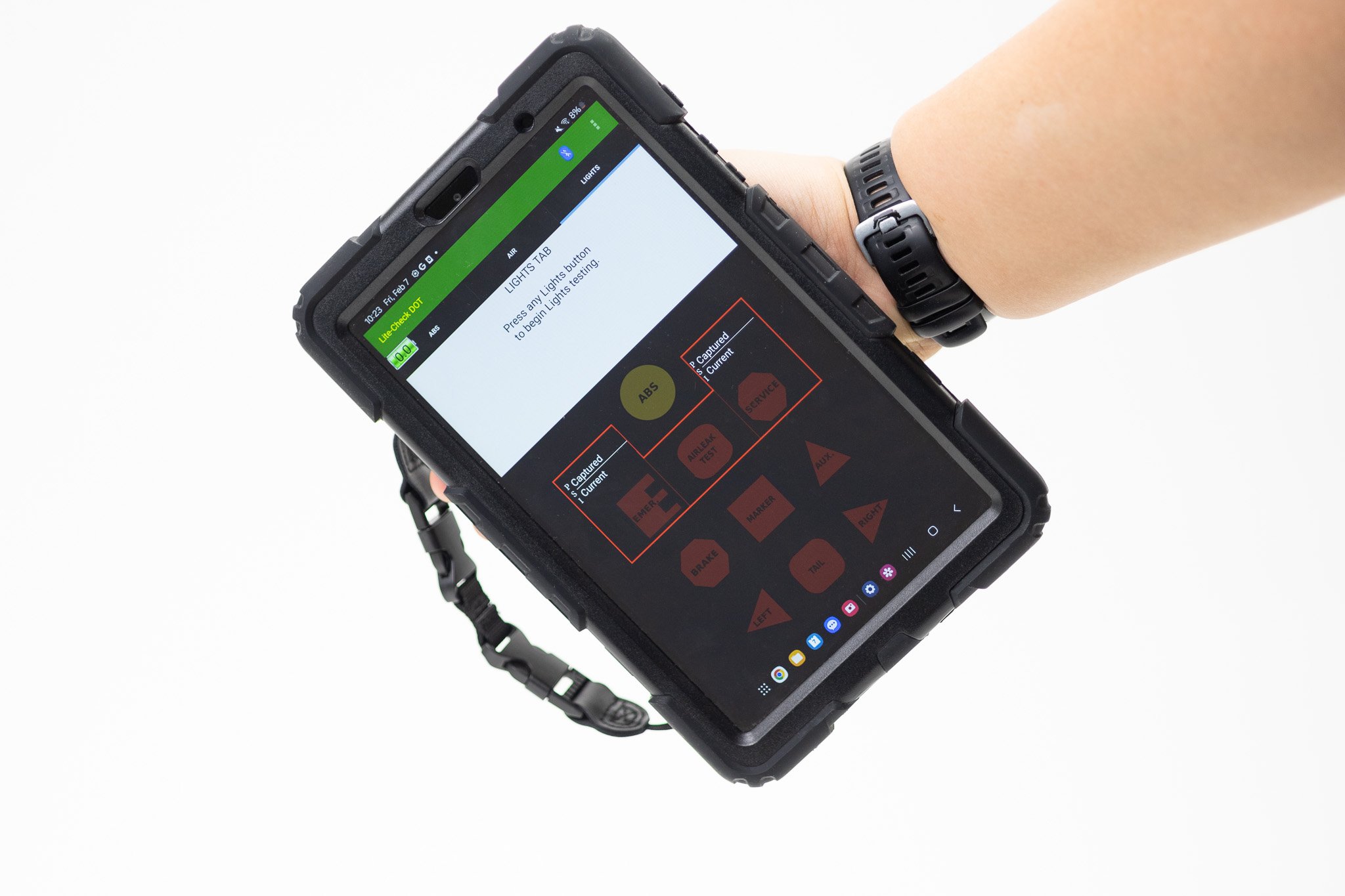Avoiding Common DOT Fines With Better Tools
DOT fines can hit harder than just the dollar amount. They damage your CSA score, increase insurance premiums, sideline revenue-generating equipment, and create a paper trail that haunts your fleet for months. Most of these fines, however, are preventable — and the root cause often ties back to incomplete inspections.
With the right DOT trailer inspection tools, your shop can stay ahead of violations, pass inspections with confidence, and eliminate costly guesswork in the bay.
What Leads to the Most Common Fines?
Every roadside inspection puts your trailer under a microscope. The most frequently cited violations include:
Inoperative brake or signal lights
Air brake system leaks
Malfunctioning ABS indicators
Wiring defects or exposed conductors
Incorrect or missing reflectors and marker lights
Each of these is tied to basic safety — and each is clearly outlined in FMCSA’s inspection criteria. The kicker? Most fleets get penalized for things their shops thought they already checked.
The Problem With Traditional Inspection Methods
Manual inspections are time-consuming, inconsistent, and error-prone — especially under pressure. Common issues with traditional methods include:
Visual-only light checks that miss dim or flickering bulbs
Listening for air leaks instead of measuring actual pressure drop
Relying on a second technician to cycle lights from the truck cab
Guessing at ABS faults without pulling proper codes
No documentation to verify inspection was performed correctly
DOT fines often happen not because the shop isn’t trying — but because they’re not equipped with the tools to diagnose and verify every system accurately.
How Better Tools Change the Outcome
A comprehensive diagnostic device like the Inspector 930 transforms trailer inspection from a manual checklist to a data-driven process.
With one technician and one tool, you can:
Test every lighting function (brake, signal, marker, and tail)
Detect voltage drops, ground faults, and open circuits
Verify air pressure performance and leak rates
Diagnose and clear ABS fault codes
Generate inspection reports to document trailer status
This isn’t just faster — it’s significantly more accurate. It reduces human error, shortens inspection time, and ensures DOT-readiness before the trailer ever leaves the lot.
Preventing the Fines That Hurt Your Bottom Line
The average fine for a single trailer lighting or brake system violation can range from $150 to $1,000. Multiply that across a fleet, and the risk grows quickly — especially when the same faults happen repeatedly.
Preventive diagnostics help you:
Lower CSA scores and maintain clean inspection history
Avoid unplanned downtime or driver delays
Reduce rework and maintenance callbacks
Maintain documentation to defend against disputed violations
It's not just about passing inspections — it’s about protecting your fleet's uptime and reputation.
Replace Guesswork With Certainty — Use the Right Tool
DOT compliance shouldn’t rely on gut checks or flashlight walkarounds. With the Inspector 930, your shop gets a repeatable, one-person solution for testing the systems that most commonly trigger fines.
When compliance matters (and it always does), the tools you use make the difference between a green light and a red flag.
Visit Lite-Check.com, call 509-535-7512, or email info@lite-check.com to upgrade your trailer inspection workflow.

